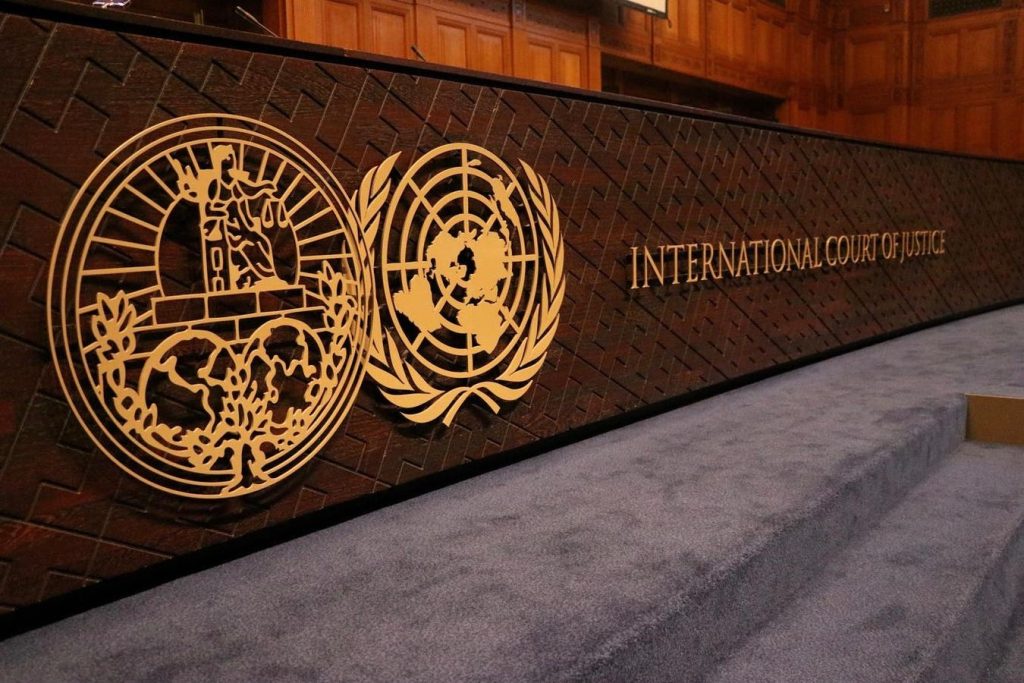The International Court of Justice (ICJ) has laid out a comprehensive schedule for oral arguments regarding its advisory opinion on the legal obligations of states concerning climate change. This initiative stems from a request made by Vanuatu to the United Nations General Assembly (UNGA) on March 29, 2023, which prompted the Assembly to seek clarity on the financial responsibilities of nations for their role in climate change. Although the advisory opinion will not be legally binding, it is anticipated to influence future climate litigation and legislative actions by establishing a legal framework for climate change obligations. Furthermore, it aims to clarify the extent of responsibility that states hold towards both the environment and future generations in the context of anthropogenic emissions of greenhouse gases.
The UNGA posed two key questions to the Court. The first inquiry focuses on the responsibilities of states under international law to safeguard the climate system and the environment from human-generated greenhouse gas emissions, specifically regarding both current and future generations. The second question examines the legal ramifications for states that cause significant harm to the climate or environment, particularly concerning vulnerable nations, such as small island developing states, that may face unique challenges due to climate change. This inquiry extends to how the actions (or inactions) of states could affect individuals and communities across generations.
To support the deliberations, the UN provided the ICJ with an initial collection of relevant legal documents and treaties. The Court further resolved to invite member states and international organizations to participate by submitting written statements which would provide diverse legal arguments and perspectives. Following the conclusion of this written submission phase, the Court set a schedule for oral arguments, signifying an inclusive approach to gathering diverse viewpoints on climate obligations.
Oral hearings commenced on December 2 at the ICJ’s venue in The Hague, featuring participation from over 100 countries and organizations. Each participant was afforded 30 minutes to present their arguments over the course of two weeks. Notably, Vanuatu and the Melanesian Spearhead Group were allocated one hour for their opening remarks, after which various countries, including South Africa, Germany, and Bangladesh, delivered their positions on the matter. The hearings provided a platform for small island nations, which are particularly vulnerable to climate impacts, to express their pleas and concerns.
On the first day of hearings, the schedule experienced changes as several states adjusted their presentation times. Gambia and Sierra Leone swapped their slots, demonstrating the dynamic planning involved in these complex proceedings. Additionally, Mauritius chose to withdraw, prompting further adjustments to the day’s agenda. Another significant development was the withdrawal of the Organization of the Petroleum Exporting Countries (OPEC) from the oral discussions, which raised questions about their potential contributions to the dialogue. Instead, OPEC released a written statement, reflecting a strategic decision to avoid participating in oral arguments.
Despite the open nature of the hearings, logistical constraints meant that public access to the proceedings was limited due to the small size of the Great Hall of Justice. Only a limited number of seats were made available to the public on a first-come, first-served basis, while the hearings were also broadcast online through the Court’s website and UN Web TV. This dual approach allowed for broader access to the discussions surrounding the pressing issue of climate change and the responsibilities that nations owe to one another and to the environment. Ultimately, these proceedings at the ICJ could set a new precedent in international law regarding states’ obligations to combat climate change and protect future generations.










